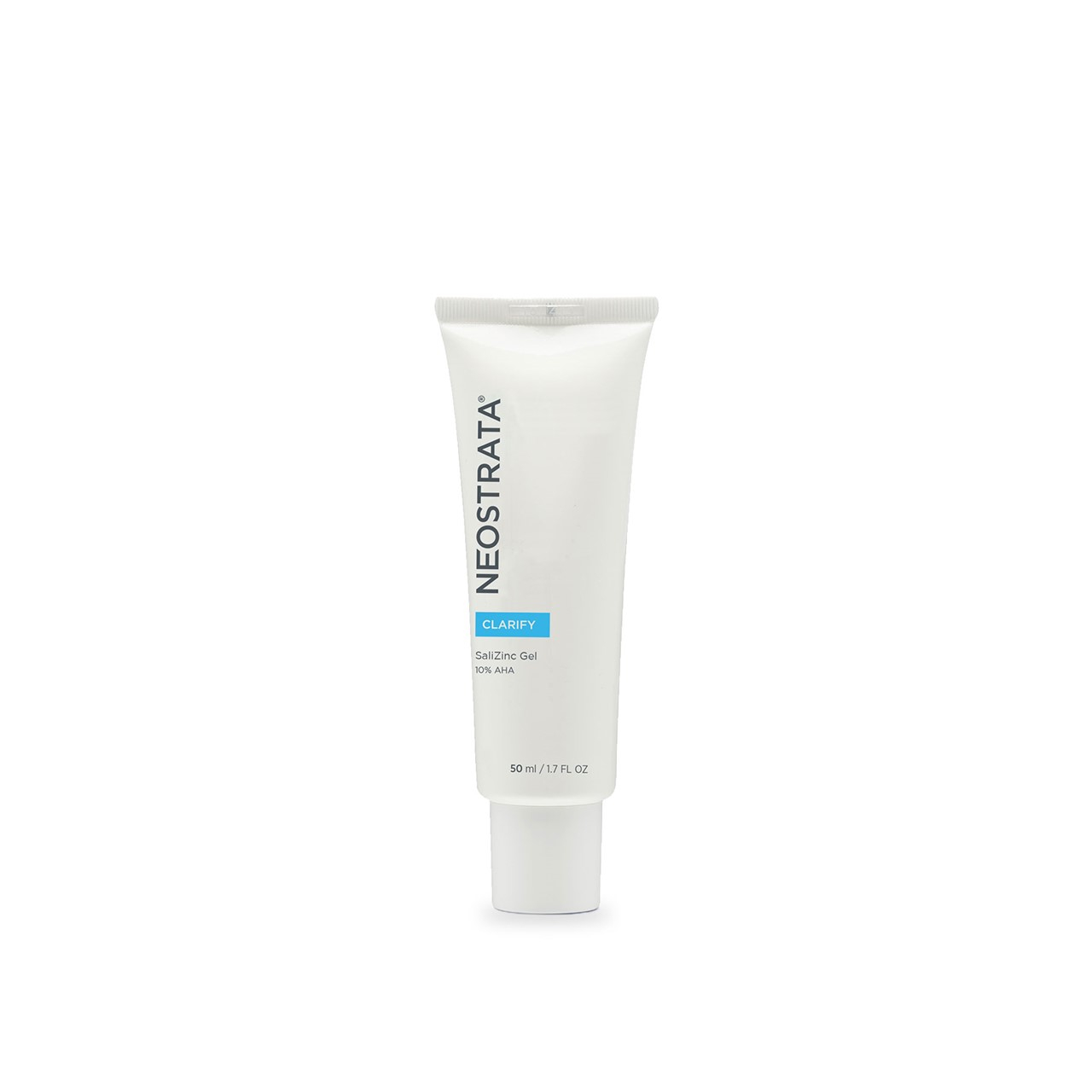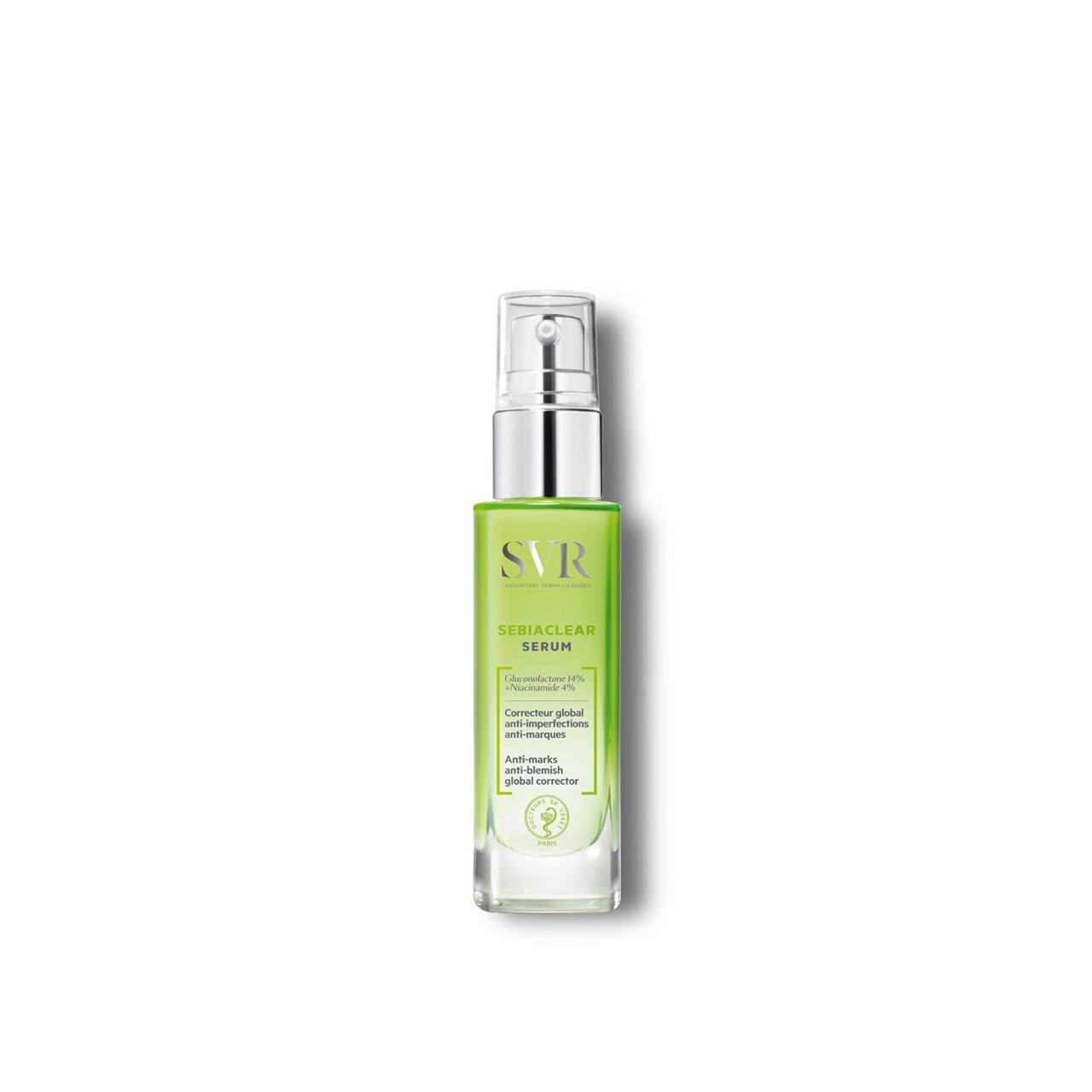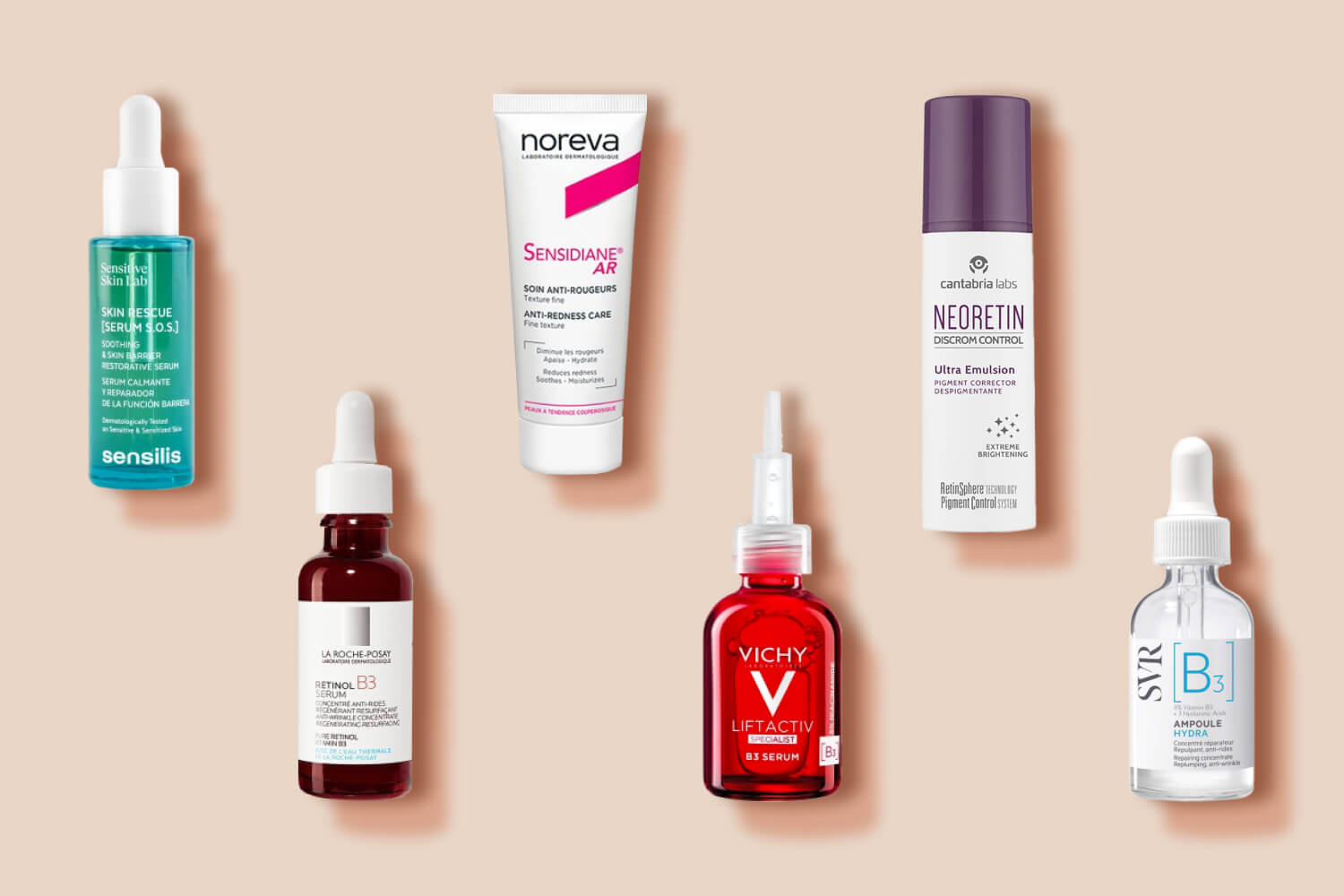
Niacinamide is one of the most talked about skincare ingredients in recent years. Featured in all types of products, from the most innovative serums to the most minimalist and soothing creams, niacinamide is an versatile ingredient with multiple benefits for your skin. Keep reading to learn more about the action of niacinamide, its potential side effects (spoiler alert: it’s a very well tolerated ingredient!), and how best to spot it in your skincare products.
On this post:
- What is niacinamide?
- How niacinamide benefits the skin
- Potential side effects of niacinamide
- Who should use niacinamide?
- How to use niacinamide in your skincare routine
- What kind of products contain niacinamide?
What is niacinamide?
Niacinamide, also known as vitamin B3, nicotinamide, or vitamin PP, is a is a water-soluble vitamin. More interestingly, it’s also a versatile active that’s recently made itself a home in the world of skincare. When it comes to skincare, niacinamide has 4 main skin benefits: it’s anti-aging, skin-brightening, soothing and repairing, and acne-fighting.
Niacinamide can be found in a variety of sources in nature, both animal and vegetable, but the version used in skincare and beauty products tends to be synthetic.
How niacinamide benefits the skin
It provides anti-aging benefits
Niacinamide may not be the first ingredient that springs to mind when we think of anti-aging skincare, but studies have shown that it may be worth looking into. According to recent studies, niacinamide “may have the ability to increase dermal collagen and protein production”. This, in turn, helps maintain skin firmness and elasticity, and minimize the appearance of fine lines and wrinkles. In addition, niacinamide also has a positive effect against the yellowing of the skin that often accompanies aging. Pretty interesting!
Niacinamide also provides anti-aging benefits through its antioxidant and photoprotective properties.
It brightens dark spots and hyperpigmentation
Dark spots and hyperpigmentation are notoriously difficult to treat, so we need all the help we can get. Recently, niacinamide has shown promise in the fight against dark spots, but not in the same way as many of your favorite brightening ingredients. While ingredients like azelaic and kojic acids improve dark spots by reducing the activity of an enzime called tyrosinase, which in turns reduces the formation of melanin, niacinamide works a little differently.
What niacinamide actually does, according to recent studies, is inhibit the transfer of melanin from melanocytes to keratinocytes. In short: it keeps melanin from reaching the upper layers of your skin, where dark spots become visible. The specific mechanisms remain unknown, but the results speak for themselves. Today, you can find plenty of brightening products on the market that contain niacinamide.
It helps repair the skin barrier
A healthy skin barrier is the first step towards healthy skin; if your skin barrier is compromised, you will feel it on your skin, with symptoms such as discomfort, redness, and tightness. At the same time, your skin will lose moisture due to ineffective water retention. Niacinamide can help you maintain a healthy skin barrier by increasing ceramide synthesis (which is great, because ceramides play a central role in the health and balance of your skin).
It fights off acne and imperfections
Acne-prone skin can be hard to manage: on one hand, you need potent active ingredients to reduce imperfections and smooth out the skin; on the other hand, acne-prone skin tends to suffer from inflammation, which makes it sensitive to many skincare products. Niacinamide might just be the answer to this conundrum, according to recent studies: in addition to having sebum-regulating properties, it is also a powerful anti-inflammatory, which helps manage acne and soothe the skin.
Last, but not least, there’s evidence that niacinamide can also help reduce redness and blotchiness–great news not only for acne sufferers, but also for anyone dealing with rosacea or other inflammatory skin conditions (like eczema, seborrheic dermatitis, or psoriasis).
Potential side effects of niacinamide
Niacinamide is generally considered safe. It has soothing properties, and is suitable for sensitive skin as an alternative to more powerful active ingredients. However, like all other ingredients, niacinamide can cause some irritation, with side effects like burning, itching, or redness. These are more likely appear if you use products with high concentrations of the ingredient, or if your skin is very sensitive, intolerant, or sensitized.
If you experience side effects while using niacinamide, you know what to do: interrupt the use of the product, and let your skin recover before trying it again.
Niacinamide and sun exposure
Niacinamide does not increase your skin’s sensitivity to the sun; in fact, it’s actually been shown to be photoprotective. According to a review from 2019, niacinamide can help reduce UV-induced inflammation on the skin and promote the repair of UV-induced DNA damage. In addition, it may also play a role in the prevention of non-melanoma skin cancer in high-risk individuals.
Now, what does this mean for you? Can you skip sunscreen if you’re applying niacinamide to your skin? Absolutely not. You should continue to practice responsible sun protection by applying sunscreen every day and reapplying it every two hours in periods of high exposure.
Niacinamide and pregnancy
Niacinamide is generally considered safe for use during pregnancy. This is great news for your skincare routine because, as we have already seen, niacinamide has multiple benefits that can be particularly useful during pregnancy. Its skin lightening function, in particular, can be useful to combat dark spots and hyperpigmentation while pregnant (as a lot of people develop dark spots or “pregnancy mask” during this period).
As always, make sure you check with your doctor or healthcare provider whether niacinamide is right for you.
Who should use niacinamide?
Niacinamide can be used by virtually anyone. However, it is a particularly interesting ingredient for people with sensitive skin, or with skin affected by pathologies that not only create inflammation, but also compromise the skin barrier (such as rosacea, atopic dermatitis, or even psoriasis). If you struggle with any of these conditions, you know it can be difficult to find products that allow you to fight not only the underlying pathology, but also secondary issues such as acne, pigmentation, or signs of aging.
In conclusion: niacinamide is a true problem-solving ingredient, and people with sensitive skin should consider including it in their routine as an alternative to more intense actives such as vitamin C or retinol.
How to use niacinamide in your skincare routine
Niacinamide is a relatively easy ingredient to combine. Niacinamide can be used together with vitamin C, hyaluronic acid, salicylic acid, and even retinol–all common ingredients you may already have in your skincare routine.
Unlike other skincare ingredients, which may be better used in the morning or evening, niacinamide can be used beneficially at any time of day. However, it is important to adjust the time of application to the specific characteristics of your product. For example, an anti-dark spot serum that contains both niacinamide and retinol will be more suitable for overnight use; conversely, an antioxidant serum that makes use of niacinamide will be ideal to use in the morning.
That’s the bottom line: niacinamide is available in all sorts of products, from cleansers to sunscreens, and you should use them depending on the instructions of each specific product
What kind of products contain niacinamide?
As we have seen, niacinamide is present in numerous products, but you can find it as a star ingredient in products aimed at four main benefits: anti-aging, skin brightening, barrier repair, and blemish control on acne-prone skin. Here’s what to look for:
Niacinamide for anti-aging
Niacinamide can be a good ingredient to integrate into an anti-aging routine: on the one hand, the ingredient itself has anti-aging benefits; on the other hand, its calming benefits help to reduce the more irritating effects of some common anti-aging ingredients.
As we have already seen, niacinamide plays well with retinol, and the La Roche-Posay Retinol B3 Serum uses them both to great effect. With 0.3% retinol and 2% niacinamide, this is the perfect antiaging serum for sensitive skin. While retinol stimulates cell renewal and increases collagen production to promote a smoother look, niacinamide optimizes hydration and promotes a healthier skin barrier. At the same time, it reduces the itching and discomfort often associated with the use of retinol.
If you are looking for an anti-aging serum with niacinamide that does not contain other more aggressive ingredients, you have a good option in the SVR Ampoule [B3] Hydra Repairing Concentrate. Formulated with hyaluronic acid and niacinamide, this serum strengthens the skin barrier, helps the skin retain hydration, and minimizes the look of fine lines and wrinkles. Because the formula is so gentle, this serum can be used even on very sensitive skin, both as an hydrating serum or as an anti-aging solution.
Niacinamide for dark spots and hyperpigmentation
As we’ve seen, niacinamide is a promising ingredient in the fight against dark spots, in part because it works a little differently from other brightening ingredients. Thus, it is common to see anti-blemish products that combine niacinamide with other brightening or exfoliating ingredients to achieve a more even skin tone.
A good example is the Vichy Liftactiv Specialist B3 Dark Spots & Wrinkles Serum, an anti-dark spots serum that combines niacinamide, glycolic acid, and exfoliating actives. The purpose of this cocktail is not only to combat the formation of dark spots in the deeper layers of the skin, but also to reduce their visibility and area on the surface of the skin. Because of its combination of ingredients, this serum is also helpful in reducing fine lines and wrinkles, making it a good product for a mixed routine that focuses on both blemishes and signs of aging.
Another brightening product that uses a cocktail of complementary ingredients is Neoretin Discrom Control Ultra Emulsion Pigment Corrector, a product that combines depigmenting and retexturizing technologies to visibly improve the appearance of the skin. With retinol to stimulate skin renewal, niacinamide and tranexamic acid to act on different mechanisms of dark spot formation, and patented EDAFENCE® technology to protect the skin from environmental stress, this product is perfect to help reduce dark spots and unify the skin tone.
Niacinamide for barrier repair & skin relief
For those who urgently need to soothe the skin, reduce irritation, and repair the skin barrier, products with niacinamide are always a good choice.
A good example is the Noreva Sensidiane Intensif AR+ Concentrated Care, an intensive care cream developed specifically for people with rosacea-prone skin. With a super soothing formula that features niacinamide as one of its key ingredients, this product soothes the skin upon application (so you can use it as an SOS product during flare-ups) but also creates a long-lasting calming effect, reducing the intensity and size of red patches over time.
If you don’t have rosacea, but are still looking for a soothing product, the Sensilis Skin Rescue [Serum S.O.S.] Soothing Restorative Serum is a great option for everyday use. Formulated with niacinamide, panthenol, and 5 growth factors (among many other soothing ingredients), this is a soothing, hydrating, and repairing serum that can be used on all sensitive or sensitized skin types. Whether your skin is sensitive by nature, or you’re recovering from cosmetic treatments (or a misadventure with a stronger skincare product), this serum is a great option for restoring your skin’s barrier function.
Niacinamide for acne-prone skin
Niacinamide can also be a good acne-fighting ingredient, and we’re already starting to see plenty of niacinamide-based products targeted to this skin issues. Here are two good examples:
NeoStrata Refine Gel SaliZinc is a gel indicated for light to moderate acne in adult women. With a cocktail of ingredients that combines exfoliant glycolic and salicylic acids, sebum-regulating zinc, and anti-inflammatory niacinamide, this gel fights the main triggers and aggravating factors of acne. At the same time, it helpsprevent the signs of premature aging.
In a similar vein, you have the SVR Sebiaclear Serum Anti-Marks Anti-Blemish Global Corrector, which helps to reduce sebum production and prevent imperfections in sensitive skin. In this product, the exfoliating action is provided by gluconolactone–a PHA that gently exfoliates the skin and stimulates cell renewal, but is gentle enough for sensitive skin. Niacinamide offers an anti-inflammatory benefit and, at the same time, promotes the balance and health of the skin barrier.
Now that you know the main benefits that niacinamide brings to your skin (and there’s plenty of them!), you know what to expect the next time you come across a product that includes niacinamide in its composition. As we have seen, niacinamide can appear in all types of products and can be useful in correcting different problems: it’s all a matter of finding the niacinamide product that best suits your skin goals!
Beauty Writer & Editor

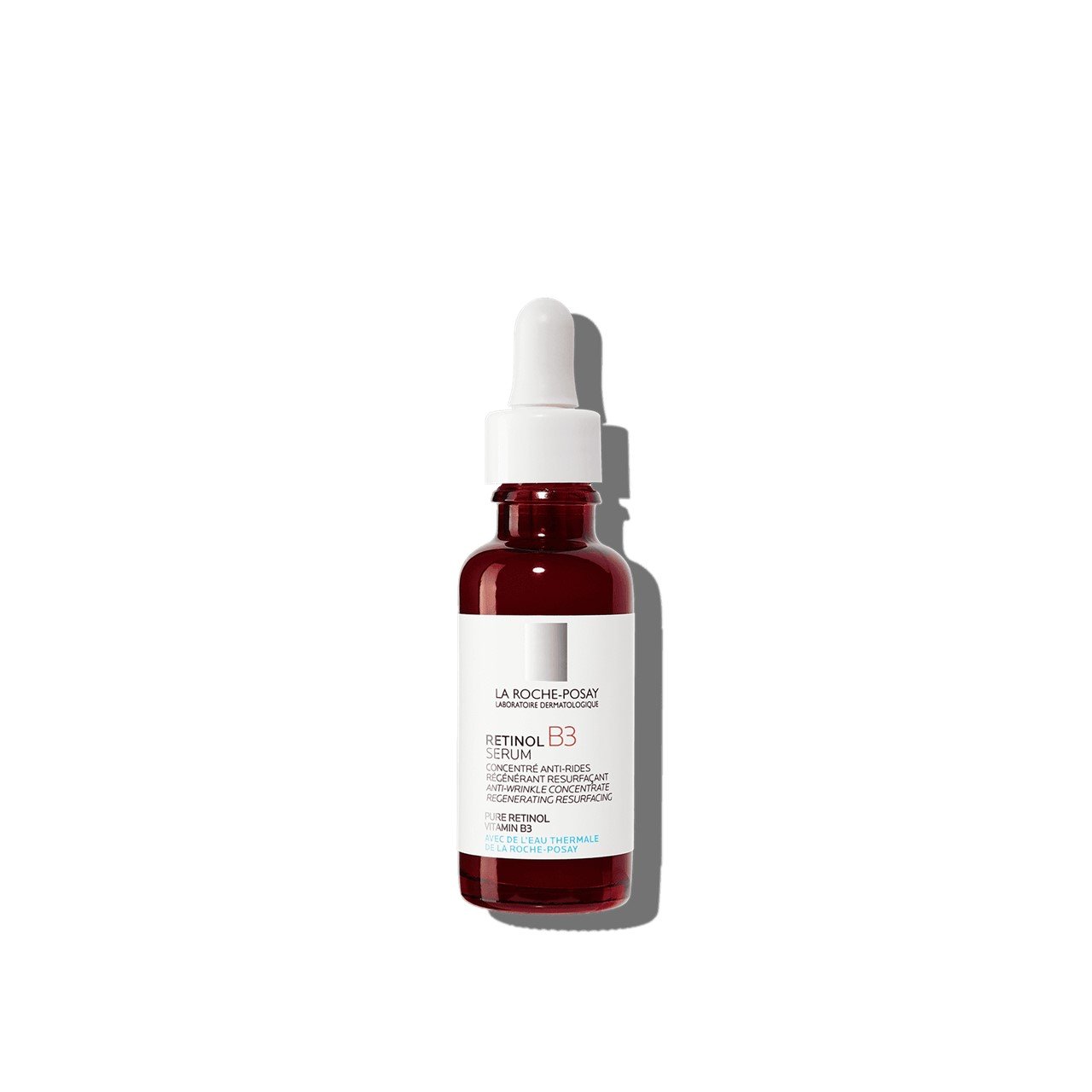
![SVR Ampoule [B3] Hydra Repairing Concentrate 30ml](https://static.beautytocare.com/media/catalog/product/s/v/svr-ampoule-b3-hydra-repairing-concentrate-30ml.jpg)

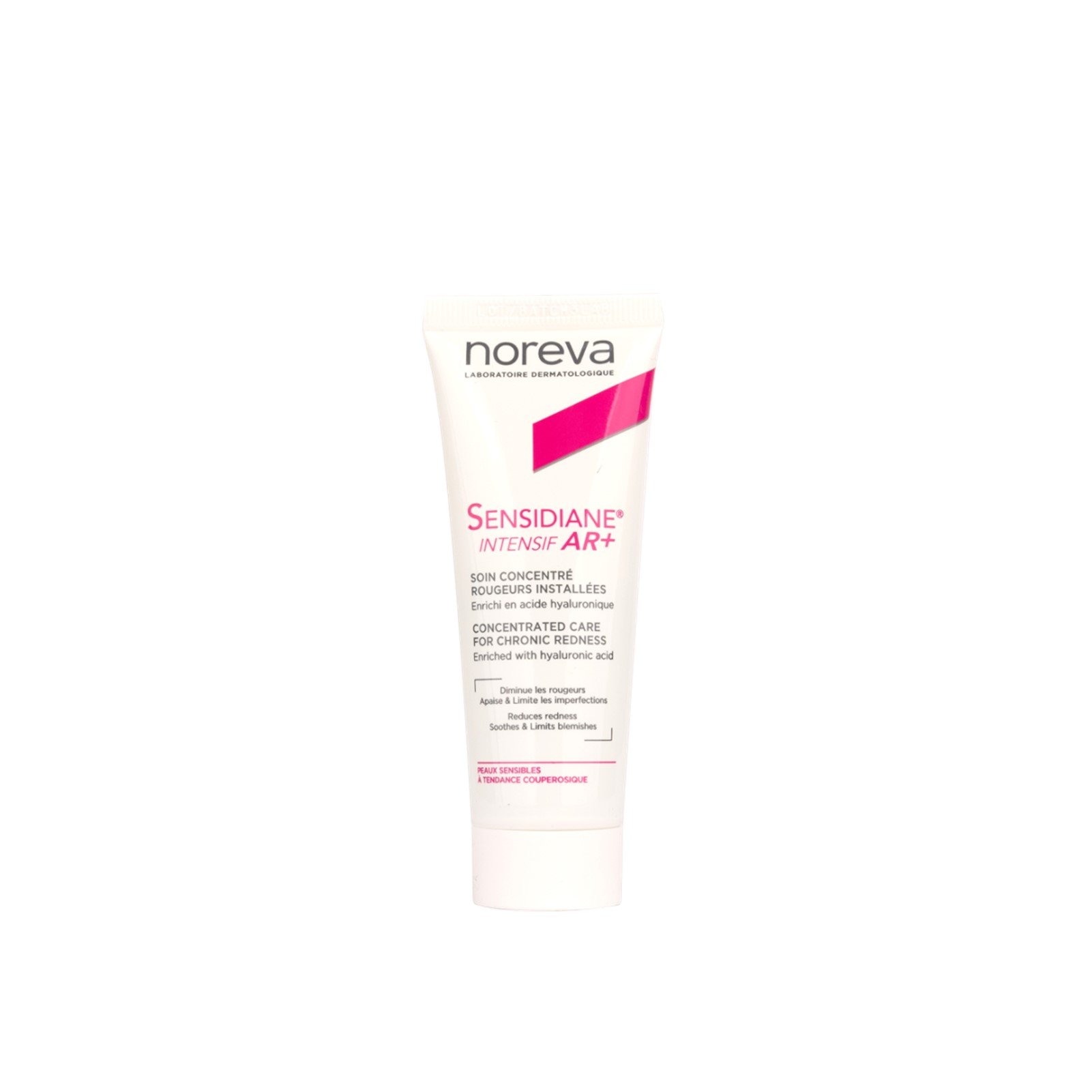
![Sensilis Skin Rescue [Serum S.O.S.] Soothing Restorative Serum 30ml](https://static.beautytocare.com/media/catalog/product/s/e/sensilis-skin-rescue-serum-s-o-s-soothing-restorative-serum-30ml.jpg)
